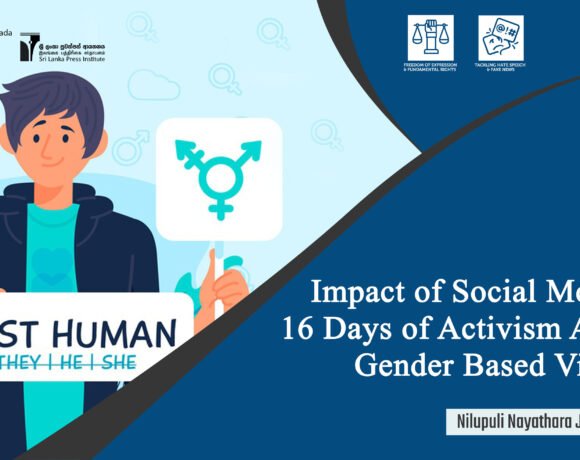
Let’s think a bit before posting!
Ahsan Afthar
The rapid growth of digital media has kept its users active all the time. Its speed is still accelerating after the Corona. In this case, there is a tradition in the digital media to react immediately when someone posts something.
Here is a typical case: A person who is working as a newsreader in a private television carried a post regarding the dress code of women, which was critical of the dress code of non-Muslim women. This became a topic of hate speech on Twitter and Facebook and the particular post was criticized by concerned Muslims as well.
The post appeared: “A non-Muslim friend asked me why Muslim women cover most of their body. My answer was, she is called a woman only when she hides what should be hidden. If the parts of a body that should have been covered are shown, that is called prostitution…! The questioner became speechless.”
He did not specify what religion the friend belonged to or what part of the body of a woman that should be hidden. But in the feedback, he had mentioned ‘areas other than the face and wrists’ as areas that need to be covered.
This post caused dissatisfaction among other religionists as the person who posted it was a Muslim. Many Muslims also had condemned this comment.
Following this, more and more hateful posts based on this post began to circulate, criticizing the person and his religion. The person in question deleted the post after realizing that the post was causing unrest among non-Muslims.
However, screenshots of the post were circulating on Twitter and Facebook. with the hashtag, including the name of the media institution the person works for. It became useless when he tried to explain about the matter on his personal account.
Opponents of the post, including non-Muslim women who saw the record, asked the person, “Are we, prostitutes?”. The post, which was recorded in all three languages, spread like wildfire. It is regrettable that non-Muslim women working in the company were also targeted with their personal photos for criticizing that person.
One among criticized women commented on her Twitter account, as “I never went to the swimming pool with the dress I wore to read the news. Neither I went to read news with a swimming dress. I am sorry to come here and make this clear to all of you. But it is best to do it before it’s too late. Initially, I thought to ignore this and pass quietly. But it has turned out so badly. I’m not going to apologize for being myself. I have not brought disrepute to my profession and my dress does not determine my character.’ She had cleared her position on freedom of dress to those who used her as an excuse to humiliate the person in question.
The writer of the post who was the cause for the criticism is not really someone who is having a grudge against other religions. His past records show that he had interacted well with non-Muslims while giving equal opportunities to the values and sentiments of other religions in his media work. However, his particular post in social media cannot be justified as correct.
Islam, like all other religions, promotes reconciliation. One’s dress varies according to culture. The reality is that it does not determine their character. He has made this post for reasons such as his concern for religion and ignorance of the seriousness of these words he had used. He feels sorry for that now.
Inter-religious understanding is essential for Sri Lanka. Never post anything that offends another person just because you have freedom of expression. Even if we think that posting is a good thing, before publishing something we need to think what impact it will have on the community. This incident is a good example of that.








